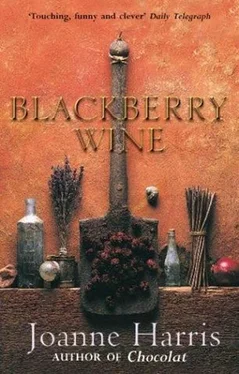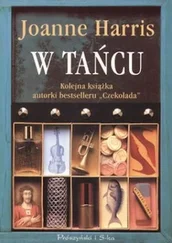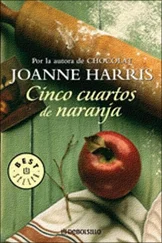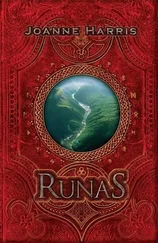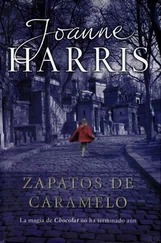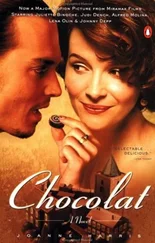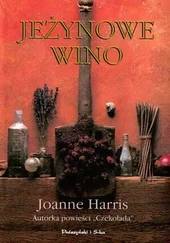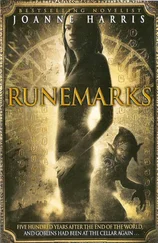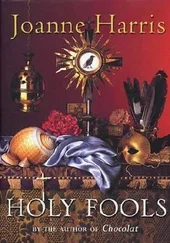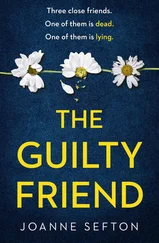Jay sat on the ground for a few minutes, turning pages gone crispy with age. There was something comforting about those magazines, as if by simply touching them he could bring Joe closer. Here were the places Joe had seen, the people among whom Joe had lived – mementoes, perhaps, of his long years on the road.
Here was French Guyana, Egypt, Brazil, South Africa, New Guinea. The once-bright covers lay side by side on the dusty floor. Jay saw that he had marked some passages in pencil, annotated others. Haiti, South America, Turkey, Antarctica. These were his travels, this the itinerary of his wandering years. Each one dated, signed, coded in many colours.
Dated and signed.
A cold finger of suspicion traced its way down his back.
Slowly at first, then turning the pages with growing, dreadful certainty, he began to understand. The maps. The anecdotes. The back copies of National Geographic , dating right back to the war…
He stared at the magazines, trying to find another reason, something to explain. But there could only be one explanation.
There had never been any years on the road. Joe Cox was a miner and had always been a miner, from the day he left school to the moment he retired. When Nether Edge pit closed down he’d gone to his council pit house on Pog Hill Lane on his miner’s pension – maybe with invalidity, too, because of his maimed left hand – and dreamed of travelling. All his experiences, his anecdotes, his adventures, his near-misses, his swashbucklings, his ladies in Haiti, his travelling gypsies – all taken from this pile of old magazines, all as fake as his magic, his layman’s alchemy, his precious seeds, no doubt collected from growers or mail-order suppliers while he wove his dreams – his lies – alone.
Lies. All of it. Fakery and lies.
Sudden, overwhelming anger shot through him. It was beyond reason – it was all the hurt and confusion of the past few months; it was Gilly’s abandonment and Joe’s betrayal; it was his parents, himself, his school; it was Zeth; it was Glenda and her gang; it was the wasps; it was his rage at everything, coalesced for a moment into a single bolt of pain and fury. He flung the magazines across the floor, kicking and stamping on the pages. He tore off the covers, treading the pictures into the mingled dust and mud. He pulled down the maps from the walls. He tipped over the empty seed chest. He ran down into the cellar and smashed everything he could see – the bottles, the jars, the fruit and the spirits. His feet crunched on broken glass.
How could Joe have lied?
How could he?
He forgot that it had been he who had run away, he who had lost his faith. All he could think of was Joe’s deception. Besides, he had come back, hadn’t he? He had come back. But if there had been magic, it was long gone.
His back hurt – he must have strained it when he greyed out in the cellar – and he went back into the kitchen feeling leaden and useless. He had cut his hand on a piece of glass. He tried to rinse it in the sink, but the water had already been turned off. That was when he saw the envelope.
It had been propped up neatly against the draining board by the window, next to the dried-up bar of coal tar soap. His name was written across the top in small, shaky capitals. Too large to be simply a letter, it looked plump, like a small packet. Jay tore the envelope clumsily, thinking perhaps this was it, Joe hadn’t forgotten him after all; this had to be some kind of explanation, a sign…
A talisman.
There was no letter in the envelope. He looked twice, but there wasn’t even a slip of paper. Instead there was a small packet – he recognized it as one of Joe’s seed packets from the chest, faintly labelled in red pencil. ‘Specials’.
Jay tore open a corner. There were seeds inside, tiny blackfly seeds, a hundred or more, rolling between his clumsy fingers as he tried to understand. No note. No letter. No instructions. Just seeds.
What was he supposed to do with them? Anger lashed him again. Plant them in his garden? Grow a beanstalk to the Land of Make-Believe? He gave a furious croak of laughter. Just what exactly was he supposed to do with them?
The seeds rolled meaninglessly between his fingers. Tears of angry, desolate laughter squirted from his eyes.
Jay went outside and climbed up onto the back wall. He tore the packet open and let the seeds float down into the cutting, blackfly on the damp winter wind. He sent the shredded envelope fluttering after them. He felt sourly exultant.
Later he thought that maybe he shouldn’t have done it, that maybe there was magic in those seeds after all, but it was too late. Whatever Joe had left for him to find, he hadn’t found it.
Lansquenet, Summer 1999
JUNE CAME IN LIKE A SHIP, BLUE SAILS UNFURLED AND SWELLING. A good time for writing – Jay’s book lengthened by another fifty pages – but even better for planting, picking out the new seedlings and setting them in their raked beds, thinning out potato plants and putting them in rows, or weeding, stripping garlands of goosegrass and ground elder from the currant bushes, or picking strawberries and raspberries from their green hollows to make jam. Joe was especially pleased by this.
‘There’s nothin like pickin yer own fruit from yer own garden,’ he pointed out, teeth clamped around the stub of a cigarette. The strawberries were abundant this year – three rows fifty metres long, enough to sell if he had a mind to – but Jay was uninterested in selling. Instead he gave them away to his new friends, made jam, ate strawberries by the pound, sometimes straight from the field, with the pink soil still dusting the flesh. Joe’s crow-scarers – flexible canes decorated with foil streamers and the inevitable red talisman – were enough to discourage the bird population.
‘You should make some wine, lad,’ advised Joe. ‘Never made any strawberry mesself. Never grew enough of ’em to bother. I’d like to see what it turns out like.’ Jay found he could accept Joe’s presence without question now, though not because he had no questions to ask. It was simply that he could not bring himself to ask them. Better to remain as he was, to accept it as another everyday miracle. Too much investigation might open up more than he was willing to examine. Nor was his anger entirely gone. It remained a part of him, like a dormant seed, ready to sprout in the right conditions. But in the face of everything else it seemed less important now, something which belonged to another life. Too much ballast, Joe always said, slows you down. Besides, there was too much to do. June was a busy month. The vegetable patch needed attention: new potatoes to dig and store in pallets filled with dry earth, young leeks to peg out, endives to cover with black plastic shells to protect them from the sunlight. In the evenings, when the day cooled, he worked on his book as Joe watched from the corner of the room, lying on the bed with his boots against the wall, or smoking and watching the fields with bright, lazy eyes. Like the garden and the orchard, the book needed more work than ever at this stage. As the last hundred pages drew to a close, he began to slow, to falter. The ending was still as hazy in his mind as when he first started. He spent more and more of his time staring at the typewriter, or out of the window, or looking for patterns in the shadows against the whitewashed walls. He went over the typed pages with correcting fluid. He renumbered sheets, underlined titles. Anything to fool himself that he was still working. But Joe was not fooled.
‘Tha’s not written much tonight, lad,’ he commented on one unproductive evening. His accent had broadened, as it did when he was at his most satirical. Jay shook his head.
Читать дальше
